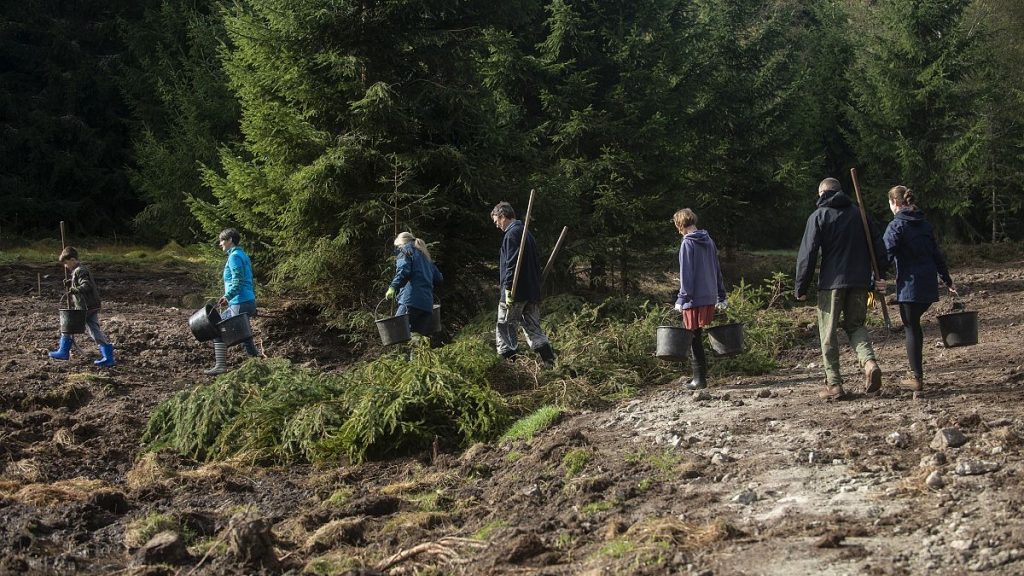The European Commission is currently embroiled in a debate over the funding of non-governmental organizations (NGOs) engaged in environmental advocacy work, with leaked documents revealing potential changes to funding rules. This reconsideration comes amidst concerns from NGOs that they require public financial support to effectively counterbalance the influence of powerful industry lobbies. The crux of the issue revolves around the European Union’s LIFE Programme, a €5.4 billion initiative spanning 2021-2027, designed to support environmental and climate action. While seemingly substantial, this budget represents a mere 0.3% of total EU spending when post-COVID recovery funds are factored in. Furthermore, the portion allocated to NGOs for operational costs is a relatively meager €15 million annually. This limited funding has raised alarms among NGOs who argue it restricts their capacity to participate effectively in policy discussions and advocate for environmental protection.
A coalition of approximately 30 environmental NGOs, including prominent organizations like Friends of the Earth Europe and Climate Action Network (CAN) Europe, penned a letter to European Commission President Ursula von der Leyen expressing their concerns. They argue that a robust democracy necessitates adequate resources for citizens’ voices to be heard by decision-makers. They highlight the inherent power imbalance in lobbying efforts, stating that resource-rich entities like multinational corporations and foreign governments possess significantly greater financial muscle than citizen groups and NGOs, hindering the latter’s ability to engage effectively in policy dialogues at the European level. This disparity in resources, they contend, threatens to marginalize citizen voices and undermine democratic processes.
Adding to the NGOs’ anxieties is the rising political backlash against environmental policies. Von der Leyen’s own political affiliation, the centre-right European People’s Party (EPP), has successfully diluted several key components of the “Green Deal” legislation, often with support from right-leaning parties. This political climate has created an atmosphere of uncertainty for environmental NGOs, raising fears that their funding might be further curtailed. Members of the European Parliament’s budgetary control committee have also voiced concerns, suggesting that funding NGOs could be perceived as the Commission indirectly lobbying Parliament through third parties, thereby raising ethical and reputational questions.
In response to these concerns, Budget Commissioner Piotr Serafin acknowledged the seriousness of the allegations and stated that the Commission has issued internal guidance clarifying which activities should not be funded. He refuted the accusation of indirect lobbying, emphasizing that organizations receiving EU funding remain solely responsible for their views, which may not align with the Commission’s position. Serafin also mentioned that the Commission is awaiting a special report from the European Court of Auditors on EU funding to NGOs, expected in the first half of 2025. This report is anticipated to shed further light on the financial practices and potential risks associated with NGO funding.
While the LIFE Programme’s legislation explicitly states that the fund should support the development, implementation, and enforcement of relevant EU environmental legislation and policy, Commissioner Serafin has indicated that certain activities directed at EU institutions, even if legally permissible, could pose reputational risks. This nuanced stance adds complexity to the debate and potentially restricts the scope of activities that NGOs can undertake with EU funding. The disparity in financial resources between NGOs and industry lobbies remains a significant concern. The maximum operating grant awarded to any single organization under the LIFE Programme in 2023 was €700,000, which was granted to several prominent environmental groups.
In contrast, industry lobby groups such as the European Chemical Industry Council and Business Europe boast significantly larger annual budgets, exceeding €10 million and €6 million respectively. This substantial difference in financial capacity highlights the challenge faced by NGOs in competing for influence and advocating for environmental protection against well-funded industry interests. For many NGOs active in Brussels, funding from the LIFE Programme represents a substantial portion of their annual budget, often exceeding half their total income. This reliance on EU funding underscores the vulnerability of these organizations to potential funding cuts and the importance of maintaining adequate public support for their operations. The ongoing debate over NGO funding within the European Commission highlights the complex interplay between environmental policy, lobbying efforts, and public perception. The outcome of this debate will significantly impact the ability of NGOs to act as a countervailing force against powerful industry interests and advocate effectively for environmental protection within the EU.














